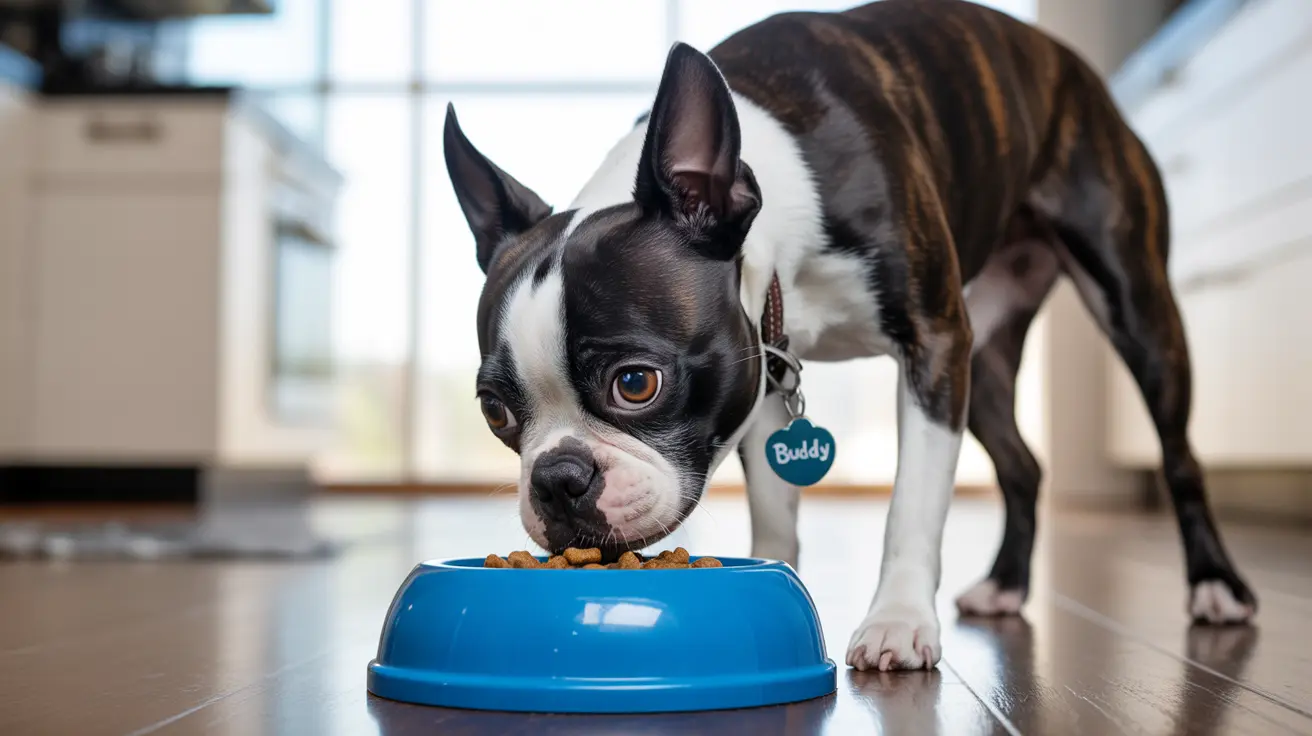Boston Terriers are beloved for their friendly personalities and adorable faces, but they're also notorious for something less charming - their frequent flatulence. If you're wondering why your Boston Terrier farts so much, you're not alone. This common characteristic stems from several unique factors related to their anatomy, genetics, and digestive system.
Let's explore the main reasons behind your Boston Terrier's excessive gas and discover practical solutions to help manage this smelly situation.
The Brachycephalic Factor: How Anatomy Affects Gas Production
Boston Terriers' distinctive flat-faced (brachycephalic) structure significantly contributes to their gassy nature. Their shortened airways and compressed facial anatomy cause them to swallow excessive air while eating and drinking - a condition known as aerophagia.
This anatomical quirk means that even normal activities like eating and drinking can lead to increased gas accumulation in their digestive system. Their compact, deep-chested build also tends to trap gas more effectively than longer-bodied breeds.
Dietary Sensitivities and Digestive Issues
Boston Terriers are particularly prone to sensitive stomachs and food allergies. Common trigger ingredients include:
- Beef and dairy products
- Chicken and poultry products
- Corn, soy, and wheat
- Artificial preservatives and fillers
These sensitivities can lead to increased gas production, especially when combined with poor-quality dog food or sudden dietary changes.
Speed Eating and Air Ingestion
Many Boston Terriers are enthusiastic eaters who gulp down their food rapidly. This eating habit compounds their anatomical predisposition to swallowing air, leading to:
- Increased gas formation
- Digestive discomfort
- More frequent flatulence
- Potential bloating issues
Managing Your Boston Terrier's Gas Problems
Dietary Solutions
Implementing the right dietary changes can significantly reduce your Boston Terrier's gas issues:
- Switch to high-quality, easily digestible dog food
- Choose grain-free or limited-ingredient formulas if needed
- Transition between foods gradually over 7-10 days
- Maintain consistent feeding times and portions
Feeding Techniques
Modifying how your Boston Terrier eats can make a substantial difference:
- Use slow-feeder bowls or puzzle feeders
- Break meals into smaller, more frequent portions
- Elevate food bowls slightly to reduce air intake
- Monitor water consumption to prevent gulping
When to Seek Veterinary Care
While some gas is normal for Boston Terriers, certain signs warrant professional attention:
- Excessive or unusually foul-smelling flatulence
- Accompanying symptoms like diarrhea or vomiting
- Significant changes in appetite or weight
- Signs of discomfort or bloating
Frequently Asked Questions
Why do Boston Terriers fart so much compared to other dog breeds?
Boston Terriers fart more frequently due to their brachycephalic facial structure, which causes them to swallow excess air, combined with their sensitive digestive systems and tendency toward food allergies.
How does the brachycephalic (short-nosed) anatomy of Boston Terriers contribute to their excessive gas?
Their short-nosed anatomy leads to increased air swallowing during eating and drinking, which creates more gas in their digestive system. Their compressed facial structure also affects their eating mechanics, often causing them to gulp air along with their food.
What dietary changes can help reduce flatulence in Boston Terriers?
Switching to high-quality, easily digestible food, avoiding common allergens, and maintaining consistent feeding schedules can help reduce gas. Consider grain-free or limited-ingredient diets if your dog shows sensitivity to certain ingredients.
How can I prevent my Boston Terrier from swallowing too much air when eating?
Use slow-feeder bowls or puzzle feeders, divide meals into smaller portions, and consider elevated feeding bowls. These methods help reduce the amount of air swallowed during meals.
When should I consult a vet about my Boston Terrier's excessive farting and digestive issues?
Consult a veterinarian if your dog's gas is accompanied by diarrhea, vomiting, weight loss, or signs of discomfort. Also seek professional advice if there's a sudden increase in frequency or severity of flatulence.






